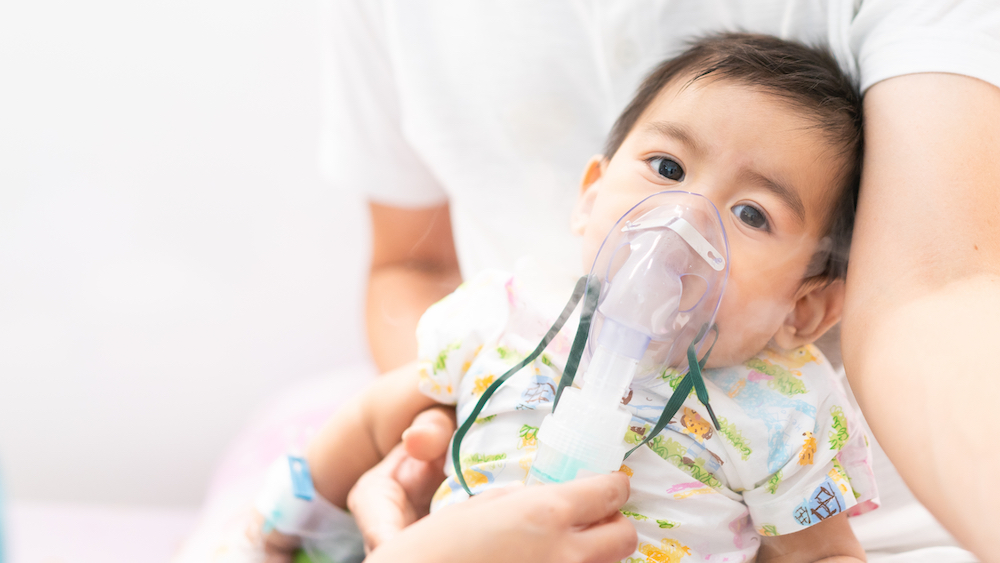RSV (respiratory syncytial virus) is a contagious virus affecting the lungs and breathing airways. Most children get infected by the virus before they are 2 years of age. And while the symptoms are very similar to the common cold and not usually serious, the virus can make some children more severely ill.
Each year, an estimated 58,000-80,000 children younger than 5-years old are hospitalized with RSV. Children who are at greater risk include premature infants, babies under 6 months old, and children with chronic lung disease, congenital heart disease, weakened immune systems, or neuromuscular disorders. The virus can also cause serious illnesses such as bronchiolitis and pneumonia. Bronchiolitis is when the lung becomes infected and the small airways of the lungs becomes inflamed and congested. Pneumonia is another infection of the lungs, where the air sacs become filled with fluid or pus and can cause fever, cough, and chills. Both conditions also cause difficulty breathing and wheezing.
The spread of RSV has increased over the past few weeks, especially as COVID-19 restrictions have relaxed. It’s important for parents and caregivers to be aware of the symptoms, how to care for their child if they’re infected, and when their child needs to be seen by a doctor.
RSV symptoms include runny nose, sneezing, decreased appetite, fatigue, ear infection, apnea, and sometimes a fever. These symptoms may not appear all at once but during the course of the illness. Serious symptoms that might be indicators of bronchiolitis and pneumonia include shortness of breath, faster breathing, vomiting, chest and abdominal pain, poor sleep, and high fever. If you notice severe symptoms such as these or if the RSV symptoms do not improve or go away after 7 days, call our office.
Fortunately, in most cases, RSV can be treated with at-home remedies and your child will be able to recover on their own. To ease symptoms, it’s helpful to use a humidifier which aid in decongestion and make breathing easier. Make sure your child is also getting enough fluids. For babies, breastfeeding can serve as protection from RSV as breastmilk has antibodies that can prevent and fight infection. Using nasal saline with gentle suctioning is also useful for breaking down the mucus. If your child is older than 6 months, you can use acetaminophen or ibuprofen, which can help with headaches and fevers. However, avoid giving your child aspirin and cough and cold medications. If you have any questions about medications, you can call our office.
There are also measures you can take to prevent your child from being infected. For babies and younger children, try to limit their exposure to crowded places or anyone who might be sick. It’s important that both you and your family wash hands frequently with soap and water for at least 20 seconds and after touching surfaces and objects. Use hand sanitizer when washing hands is not an option. As RSV can survive on hard surfaces for up to 6 hours, you’ll also want to make sure that you wipe and disinfect objects such as toys or any surface your child may touch. Encourage your child not to touch their face after touching any surface or object that have not been disinfected.
If you have any questions or concerns about RSV, you can always reach our office.
Sources:
https://www.cdc.gov/rsv/high-risk/infants-young-children.html




